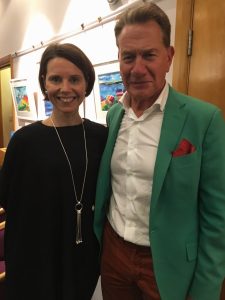Amplifying women’s voices
I’m fresh from mentoring a group of students to ‘take over’ St Albans Council (part of the Council’s European Local Democracy Week) and I’m really quite cross with myself. In this post I’m exploring how we can raise women’s voices at work, in politics and in education. Read how I got the grump, and rid of it.
There were four girls among my group of 10 students and from the outset they were quiet (two boys were quiet too). As the morning rolled on it became clear none of them was remotely keen on presenting the group’s motion or wanted to get involved in debating the other groups’. I was a little peeved and I’ll be honest, my first thought wasn’t “what’s turning them off?” but “Why did you come if you’re not going to show any willingness to contribute?”
I tried a couple of things that got them contributing in the prep session (splitting into three sub-groups and calling upon the quieter students by name) but by lunch time I felt like I’d failed. I hadn’t convinced them to speak in the debate. On the way out to lunch I asked one of the articulate, confident and emotionally literate boys what they think would increase girls’ active participation in days like today. He told me I was speaking to the wrong person and when I probed he told me he thought that some of the people calling themselves feminists these days were taking it a bit far and barking up the wrong tree with the gender pay gap (we didn’t get chance to unpack that).
Whilst standing in the queue at Pret a glowing ember of hope got glowing in me as I read a summary of new research showing the power female role models on female students’ attainment. Hoorah, I had the answer….for next year’s cohort!
The study in Basic and Applied Social Psychology looked at what happened when psychology and chemistry students read a letter from a female graduate in their field sharing difficulties they had overcome as a student, how they had felt they didn’t belong and emphasising the value of a science degree. Half the students in the study were exposed to one of these letters whilst half weren’t. The psych students who read the letter were 62 per cent less likely to receive a D, E or F grade or withdraw; the chemistry students were 77 per cent less likely to receive these grades or withdraw (as compared with students who didn’t read the letter).
I think this is astonishing.
I’m wondering how generalisable this finding is and whether we could use ‘letters from lady leaders’ in the world of work to help women in male-dominated fields stay in and keep pressing on. This could be an impressively simple, inexpensive and effective tool and I’d love to pilot it. If you can think of someone with influence in a workplace who might be curious, please let me know.
Now I have two questions that I’d love your answers to:
1) What point(s) in your career might it have been motivating to read such a letter?
2) What would you write in such a letter to inspire young female entrants to your field?
Go on, give me a view because if this was an e-mail to men they sure as hell would.
I’ve written a letter to a psychology student, that you can read below.
Back in the Chamber a young lady from another group impressed me. At the end of the debate I made a beeline for her and praised her contribution, pointing out that just 5 of the 13 girls compared to 11 of the 17 boys spoke during the debate. I told her about the research I’d read at lunch about role models. I asked her to consider having a chat with next year’s female participants from her school before they took part, because her sharing her experience could make the difference between girls finding their voices or not.
And finally, with the lack of women’s voices ringing in my ears I was sure to ask a question of ex-MP Michael Portillo, one of my favourite contributors to BBC Radio 4’s programme, Moral Maze, a couple of days later. Out of an audience of about 200, which looked to be an equal f:m split, 12 questions were asked and only three were from women.
We have to change this and it’s up to all of us.
My letter to a female scientist
Dear Psych student,
I found being 200 miles from home, and living on a campus devoid of wider society, really difficult in my first couple of years at Stirling university. I was captivated by the beauty of the place and I have to admit that I was caught up in the romanticism of this being Braveheart country. (Mel Gibson’s Braveheart was premiered at a specially built lecture theatre on campus the year before I joined).
I remember writing to Leeds university at the start of my second year to see if I could transfer so I must have been finding it tough. I don’t actually remember what came back and I stayed in Stirling.
I took a four-year course in psychology and my first year included modules in philosophy and biology too (my choosing – students could choose any two additional subjects). In the second year students dropped one subject and continued with two, before focusing on their core degree for years three and four. I recall lab work in biology that I didn’t find particularly interesting even though the main lecturer was really enthusiastic about his work. He kept talking about Monsanto as though I should have known what that was. And when we had to do a group project I could have cried! I never was very good at collaborating with people who didn’t want to put much effort in. But I got through it.
Thinking about psychology, I had a couple of really excellent lecturers and some dire ones. Let me tell you about one particular horror before moving to the good stuff.
I can’t remember the name of this particular psychologist but I remember the really awful lecture notes. It was developmental psychology in my first year and I remember being bored to tears and not really being able to make much sense of it all. It was so bad and I was so turned off by it that I just didn’t revise any of it for my first year exam and took a punt on being able to get away with answering questions from other parts of the course!
One of the first rate lecturers, Dr Hannah Buchanan-Smith, became my dissertation supervisor. She had a kind face, a passion for her subject (primate behavior, and tamarins specifically) and complete commitment to putting on interesting lectures with great slides. If I was to give you one bit of advice it would be to get close to enthusiastic people and if they’re doing something you find interesting, stick to them! Hannah talked about mate attractiveness in one lecture and how the waist-hip ratio in women was a significant correlate with how attractive men found them. I was hooked! Hannah and I are still in contact 16 years later.
In my final year I compared myself to my brother and the awesome time he was having in his first year at Loughborough. He’s inherently more cool than I am and I always felt like I’d failed socially at university. However, this spurred me on to knuckle down and go deep into the brilliant subject that is psychology – I thought that if I came out with an excellent degree it would make up for this. Having got BBC at A-level, I never expected to come away with a First and when I did, I was ecstatic.
Please keep going. I’m sure you chose psychology for all the right reasons. You’ll do as well as the attention you give it. Enjoy!
Best wishes,
Jessica













TYPOs in FIRST ONE, CAN YOU USE THIS ONE PLS?
Interesting article Jessica – thanks for sharing.
I find it so depressing how many speaker platforms are all male (generally white too). I challenge it via Twitter whenever I see it. I cannot believe that professional event organisers cannot dig up a woman from somewhere! But interestingly, I am often told they have asked women but none are available/want to do it. So it isn’t just asking questions of speakers that is an issue, “we” generally don’t want to speak out.
I have just returned from organising an event with 120 undergraduates, 116 were female. It was interesting to see the handful of males students ask the first questions and the majority of them.
Keep up your good work.